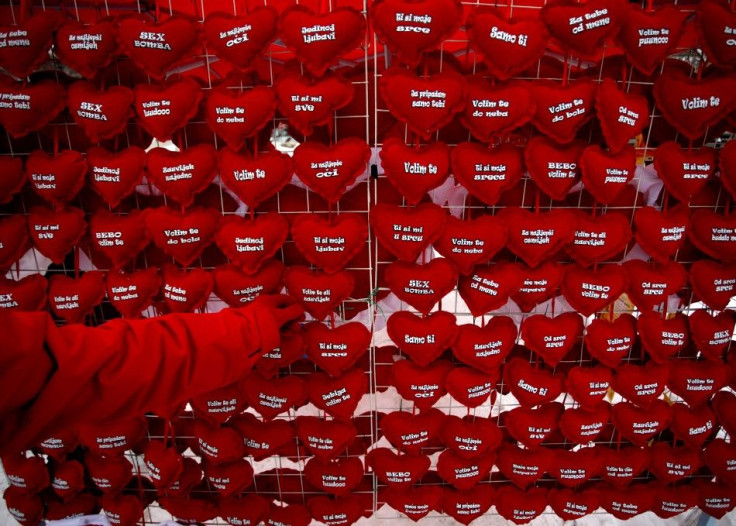Valentine's Day Gift Buying Could Leave U.S. Retailers Jilted

While Valentine's Day has always been sure to disappoint lonely hearts, this year's festivities also may dishearten the retailers used to sweetheart sales during the period, various economic indicators suggest.
American consumers, while optimistic about the future and encouraged by recent economic developments, are tightening their wallets. A survey by credit card issuer Visa Inc. out last week found consumers surveyed expected to spend 3 percent less this year than they did last year: an average of $117, down from $121 last year.
Love is on a budget in 2012, with a new survey by Visa Inc. finding that Americans will spend less on Valentine's Day gifts, flowers, dining and other items this year, the company said in a statement.
That survey meshes with consumer sentiment data also released last week. On Friday, a preliminary reading of February consumer sentiment conducted by the University of Michigan and Thomson Reuters revealed consumers have a more negative tone about their current finances than economists had predicted, even though their expectations of how they will fare economically have not been downgraded as much.
Current conditions, and more precisely a negative tone towards current finances, was the heaviest drag, Vimombi Nshom, an economist at IFR economics, told Reuters after the consumer confidence assessment came out. Even though optimism towards the job market kept up, the CSI was unable to hang on to sentiment expressed last month.
Other signs also show U.S. shoppers, while optimistic about the future, being financially cautious. While retail sales over the holiday season soared, and sales of big-ticket items like automobiles and factory equipment were strong in January, data from the Fed shows people put a lot more of those purchases on credit cards than economists expected.
U.S. consumers added $33.1 billion in debt to their finances in December - out of which nearly $20 billion was credit card debt - blowing away market expectations of around $7.7 billion.
All in all, the signs point to consumers ready to take a break in spending, and more likely to be writing I O U than I ♥ U on their Valentine cards.
© Copyright IBTimes 2024. All rights reserved.











